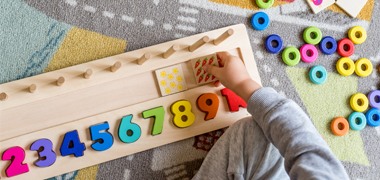
This role has a low level of AI exposure. Core skills such as adaptability, social intelligence, and complex physical tasks remain beyond the capabilities of current AI.
Explore all careersA Lead Educator cares for young children in a childcare centre, preparing educational programs, organising activities, and supporting daily routines.
Get qualified to work as a Lead Educator with a course recognised across Australia. Speak to a training provider to learn more.
Browse occupations related to Lead Educator
In Australia, a full time Lead Educator generally earns $1,400 per week ($72,800 annual salary) before tax. This is a median figure for full-time employees and should be considered a guide only. As you gain more experience you can expect a potentially higher salary than people who are new to the industry.
 Courses.com.au Team
Courses.com.au Team
The number of people working in this industry has grown strongly in recent years. There are currently 96,300 people working in the childcare sector and many of them specialise as a Lead Educator. Lead Educators may find work across all regions of Australia.
Source: Australian Government Labour Market Insights
 Courses.com.au Team
Courses.com.au Team
If you’re thinking of becoming a Lead Educator, consider enrolling in a Diploma of Early Childhood Education and Care. You’ll develop the skills to provide education and care for young children in a range of settings. A Dual Certificate III in Early Childhood Education and Care (Family Day Care) and Diploma of Early Childhood Education and Care may also be suitable.
 Courses.com.au Team
Courses.com.au Team



A Lead Educator cares for young children and babies in a childcare centre. You’ll prepare educational programs and organise activities that nurture children’s creativity and development. Lead Educators support children during daily routine activities such as eating or toileting and may focus on areas such as social skills or personal hygiene practices.
Lead Educators should be organised and able to handle several tasks at one time. It’s important you have strong personal skills and enjoy working with young children. Lead Educators should have good communication skills and be able to liaise with colleagues, parents and children. You’ll need to be patient and be able to follow correct procedures.